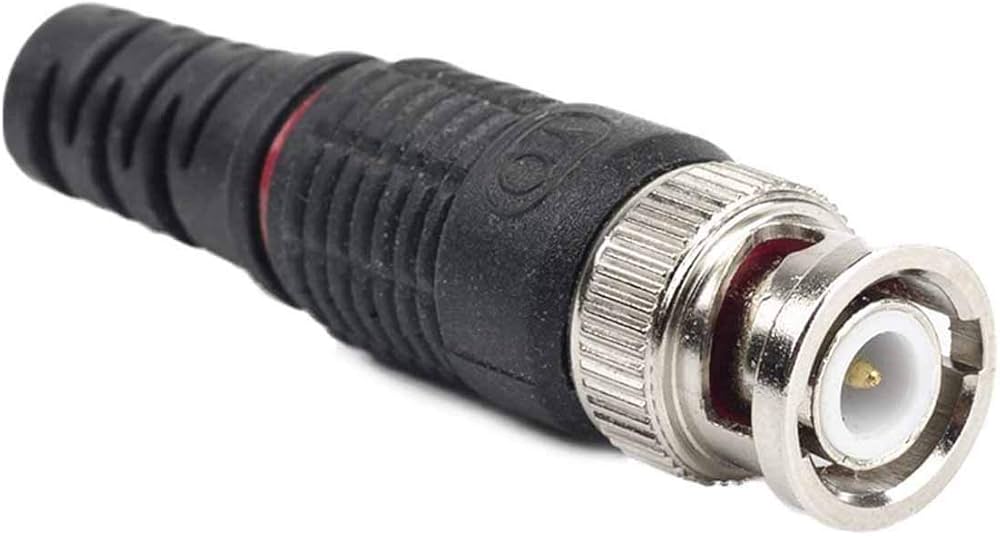BNC connectors, or Bayonet Neill-Concelman connectors, are a widely used type of RF connector. Known for their quick-connect bayonet mechanism, they offer reliable performance and ease of use in various industries, including telecommunications, broadcasting, and instrumentation. Choosing the right bnc connector involves understanding its applications, features, and the factors that affect the BNC connector price.
This article explores the significance of BNC connectors, their types, and practical tips for selecting the right one.
What is a BNC Connector?
A BNC connector is a miniature RF connector used for coaxial cable connections. Invented in the late 1940s by Paul Neill and Carl Concelman, it was designed to provide a secure, quick connection for high-frequency signals. These connectors are characterized by their two-lug bayonet coupling, which allows for easy insertion and removal without the need for special tools.
They are primarily used in applications requiring signal integrity and reliability, such as video transmission, test equipment, and RF communication systems.
Features of BNC Connectors
BNC connectors are widely preferred for their unique features:
- Ease of Installation: The bayonet coupling mechanism simplifies the installation and removal process, saving time during equipment setup.
- Compact Design: BNC connectors are small and lightweight, making them ideal for use in compact devices.
- Versatility: They are compatible with a range of coaxial cables and can handle both analog and digital signals.
- Signal Stability: These connectors maintain signal quality and prevent interference, ensuring reliable performance.
- Durability: Built with robust materials like nickel-plated brass, BNC connectors are resistant to corrosion and wear.
Types of BNC Connectors
1. Standard BNC Connectors
These are the most common type and are used in applications like video surveillance, radio systems, and signal testing. They support frequencies up to 4 GHz and are suitable for both 50-ohm and 75-ohm systems.
2. High-Frequency BNC Connectors
Designed for applications requiring higher bandwidth, these connectors can handle frequencies up to 12 GHz. They are used in advanced RF communication systems and test instruments.
3. Miniature BNC Connectors (Mini BNC)
Mini BNC connectors offer the same functionality as standard BNC connectors but are smaller in size. These are ideal for space-constrained applications like medical equipment and mobile devices.
4. Reverse Polarity BNC Connectors
These connectors have reversed gender components, often used in systems requiring unique configurations to prevent accidental mismating.
Applications of BNC Connectors
1. Video Transmission
BNC connectors are extensively used in CCTV systems and broadcast equipment. Their ability to handle high-frequency signals ensures clear video quality.
2. Test and Measurement Equipment
In laboratories and testing environments, BNC connectors are used with oscilloscopes, signal generators, and other diagnostic tools. Their reliable coupling mechanism ensures accurate measurements.
3. Telecommunications
Telecom networks rely on BNC connectors for transmitting RF signals over coaxial cables. Their durability and performance make them a staple in communication setups.
4. Aerospace and Defense
In critical applications like radar systems and avionics, BNC connectors provide reliable signal transmission under challenging conditions.
Factors Influencing BNC Connector Price
The BNC connector price varies based on several factors:
- Material Quality
Connectors made from high-grade materials like gold-plated contacts and corrosion-resistant metals are more expensive but ensure better conductivity and longevity. - Frequency Range
Connectors capable of handling higher frequencies tend to be pricier due to their specialized design. - Connector Type
Specialized connectors like high-frequency or miniature BNC connectors cost more than standard variants. - Brand and Manufacturer
Well-established brands typically charge higher prices for their products, as they guarantee quality and performance. - Quantity Purchased
Bulk purchases often reduce the per-unit price, making it cost-effective for large-scale applications.
How to Select the Right BNC Connector
When choosing a BNC connector, consider these factors:
1. Application Requirements
Identify the specific needs of your application, such as the frequency range, impedance, and cable type.
2. Durability
For outdoor or harsh environments, select connectors with corrosion-resistant materials and robust designs.
3. Signal Performance
Ensure the connector maintains signal integrity and reduces interference, especially for high-frequency applications.
4. Compatibility
Verify that the connector matches the cable’s impedance (50 or 75 ohms) to avoid signal loss.
5. Budget
Consider your budget and balance quality with affordability. Higher-quality connectors might cost more upfront but save costs in the long run by reducing replacements.
Common Questions About BNC Connectors
What is the difference between 50-ohm and 75-ohm BNC connectors?
The primary difference lies in their application. 50-ohm BNC connectors are used for RF and data applications, while 75-ohm connectors are optimized for video and broadcast signals. Using the correct impedance ensures optimal performance.
Can BNC connectors handle 5G frequencies?
Standard BNC connectors are not typically designed for 5G applications due to their frequency limitations. However, high-frequency BNC connectors can support higher bandwidths required by modern technologies.
Are BNC connectors waterproof?
Some BNC connectors come with waterproof or weather-resistant designs, making them suitable for outdoor applications.
Conclusion
BNC connectors play a vital role in ensuring reliable signal transmission across a wide range of industries. Their compact design, versatility, and durability make them a popular choice for applications like video transmission, telecommunications, and testing. When selecting a connector, consider the application requirements and factors influencing the BNC connector price to ensure you make the right choice.
With the evolution of technology and the rise of advanced communication systems, BNC connectors continue to be a trusted component in RF and video applications worldwide.
